Books on consciousness
A list of books relating to the hard problem of consciousness. Regularly updated cos I keep finding new stuff all the time.
A list of books relating to the hard problem of consciousness. Regularly updated cos I keep finding new stuff all the time.
2021
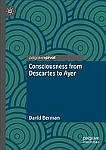 David Berman
David Berman
Consciousness from Descartes to Ayer
(Palgrave Macmillan 2021)
Contrary to the belief that we have one basic and natural form of consciousness, Berman contends that each of us has one of two basic forms of consciousness, one that is monistic, the other dualistic. He connects this thesis with recent developments in genetics and anthropology and illustrates how to use the history of philosophy to do substantive philosophy. See Springer | Amazon | Google
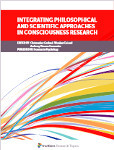 Christopher Gutland et al. (eds.)
Christopher Gutland et al. (eds.)
Integrating Philosophical and Scientific Approaches in Consciousness Research
(Frontiers 2021)
Consciousness has a long history as a topic of philosophical investigation but its status as an object of scientific inquiry is a comparatively recent development. The articles in this open-access collection address a diverse range of questions surrounding the integration of philosophical and scientific approaches in consciousness research. See Frontiers | Google
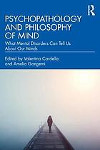 V. Cardella & A. Gangemi (eds.)
V. Cardella & A. Gangemi (eds.)
Psychopathology and Philosophy of Mind: What Mental Disorders Can Tell Us About Our Minds
(Routledge 2021)
This book argues that studying mental disorders can deepen the understanding of psychological mechanisms such as reasoning, emotions, and beliefs alongside fundamental philosophical questions, including the nature of the self, the universal aspects of morality, and the role of rationality and normativity in human nature. See Routledge | Amazon | Google
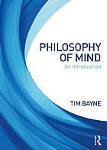 Tim Bayne
Tim Bayne
Philosophy of Mind: An Introduction
(Routledge 2021)
Developments in the philosophy of mind over the last 20 years have dramatically changed the nature of the subject. This major new introduction presents an overview of many of the key topics, problems, and debates, taking account not only of changes in philosophy of mind itself but also of important developments in the scientific study of the mind. See Routledge | Amazon | Google
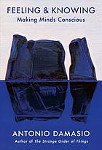 Antonio Damasio
Antonio Damasio
Feeling & Knowing: Making Minds Conscious
(Pantheon 2021)
In forty-eight brief chapters, Damasio helps us understand why being conscious is not the same as sensing, why nervous systems are essential for the development of feelings, and why feeling opens the way to consciousness writ large. Combines the latest discoveries in various sciences with philosophy and his original research. See Pantheon | Amazon | Google
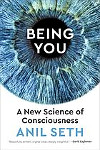 Anil Seth
Anil Seth
Being You: A New Science of Consciousness
(Penguin 2021)
Seth’s radical argument is that we do not perceive the world as it objectively is, but are rather prediction machines, constantly inventing our world and correcting our mistakes. All our conscious experiences, he argues, arise from these predictive models which have their origin in the fundamental biological imperative to keep living. See Penguin | Amazon | Google
 Jonathan Mitchell
Jonathan Mitchell
Emotion As Feeling Towards Value: A Theory of Emotional Experience
(Oxford 2021)
Mitchell considers emotional experiences as sui generis states; not to be modelled after other mental states such as perceptions, judgements, or bodily feelings, but given their own analysis and place within our mental economy. More specifically, he proposes an original view of emotional experiences as feelings-towards-values. See Oxford | Amazon | Google
 Alex Gregory
Alex Gregory
Desire as Belief: A Study of Desire, Motivation, and Rationality
(Oxford 2021)
It is natural to assign a necessary role to our wants in explaining and evaluating everything we do. But it is also natural to say that our normative beliefs sometimes suffice to explain or evaluate what we do. Gregory resolves this tension by identifying our wants with our normative beliefs: on his view, these are two different labels for a single thing. See Oxford | Amazon | Google
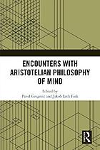 Pavel Gregoric & Jakob Leth Fink (eds.)
Pavel Gregoric & Jakob Leth Fink (eds.)
Encounters with Aristotelian Philosophy of Mind
(Routledge 2021)
This collection of essays engages with several topics in Aristotle’s philosophy of mind, some well-known and hotly debated, some new and yet to be explored. The contributors analyze Aristotle’s arguments and present their cases in ways that invite contemporary philosophers of mind to consider the potentials—and pitfalls—of an Aristotelian philosophy of mind. See Routledge | Amazon | Google
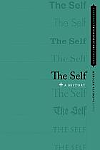 Patricia Kitcher (ed.)
Patricia Kitcher (ed.)
The Self: A History
(Oxford 2021)
This book is about the ways that the concept of an “I” or a “self” has been developed and deployed at different times in the history of western philosophy. It also offers a striking contrast case, the “interconnected” self, who appears in some expressions of African philosophy. See Oxford | Amazon | Google
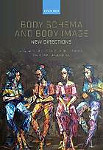 Y. Ataria, S. Tanaka & S. Gallagher (eds.)
Y. Ataria, S. Tanaka & S. Gallagher (eds.)
Body Schema and Body Image: New Directions
(Oxford 2021)
This volume brings together leading experts from philosophy, neuroscience, psychology, and psychiatry. It explores fundamental questions about the relationship between body schema and body image and addresses ongoing debates about the role of the brain and the role of social and cultural factors in our understanding of embodiment. See Oxford | Amazon | Google
 Michael Tye
Michael Tye
Vagueness and the Evolution of Consciousness
(Oxford 2021)
Either consciousness appeared in living beings suddenly, like a light switch turning on, or gradually, like the biological development of life itself, through borderline cases which became the collective experience over time. Tye argues that both alternatives face deep problems. He offers a solution to this paradox and discusses its implications. See Oxford | Amazon | Google
 Tom McClelland
Tom McClelland
What is Philosophy of Mind?
(Polity 2021)
In this student-friendly guide, McClelland introduces the key ideas in philosophy of mind, showing why they matter and how philosophers have tried to answer them. Rich with real-world examples and written for the absolute beginner, this book gives students the tools to delve deeper into this dynamic field of philosophy. See Polity | Amazon | Google
 David Charles
David Charles
The Undivided Self: Aristotle and the ‘Mind-Body’ Problem
(Oxford 2021)
Aristotle initiated the systematic investigation of psychological phenomena and their interconnection. His account, it is argued, constitutes a live alternative to conventional thinking about the place of psychological phenomena in a material world and offers a way to dissolve, rather than solve, the mind-body problem we have inherited. See Oxford | Amazon | Google
 David Papineau
David Papineau
The Metaphysics of Sensory Experience
(Oxford 2021)
This book argues for a purely qualitative account of sensory experience. Conscious sensory experiences are intrinsic states with no essential connection to external circumstances or represented properties. Papineau develops this account in detail and shows that those curious about experience need not be restricted to the options in contemporary philosophical discourse. See Oxford | Amazon | Google
 Uriah Kriegel (ed.)
Uriah Kriegel (ed.)
Oxford Studies in Philosophy of Mind, Volume 1
(Oxford 2021)
The inaugural volume of a new annual publication dedicated to the philosophy of mind. Each volume will highlight two themes to bring focus to debates. In this volume, these are “the value of consciousness” and “naturalism and physicalism.” Other essays concern the nature of mental content and dualism in medieval Islamic philosophy. See Oxford | Amazon | Google
 Mark Solms
Mark Solms
The Hidden Spring: A Journey to the Source of Consciousness
(Profile Books 2021)
In this absorbing study, neuropsychologist Mark Solms argues that the mystery of consciousness centers on emotions. Stick to the medical facts, listen to the eerie testimony of hundreds of neurosurgery patients, and with the author, you’ll begin to understand that the source of consciousness may just lie in the most ancient part of the brain, the hidden spring. See Profile Books | Amazon | Google
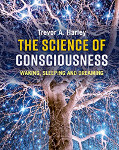 Trevor A. Harley
Trevor A. Harley
The Science of Consciousness: Waking, Sleeping and Dreaming
(Cambridge 2021)
Written for introductory courses in psychology and philosophy, this text examines consciousness with a special emphasis on current neuroscience research as well as comparisons of normal and damaged brains. The full range of normal and altered states of consciousness is covered, as well as the ‘higher’ states and how we can attain them. See Cambridge | Google

Consciousness from Descartes to Ayer
(Palgrave Macmillan 2021)
Contrary to the belief that we have one basic and natural form of consciousness, Berman contends that each of us has one of two basic forms of consciousness, one that is monistic, the other dualistic. He connects this thesis with recent developments in genetics and anthropology and illustrates how to use the history of philosophy to do substantive philosophy. See Springer | Amazon | Google

Integrating Philosophical and Scientific Approaches in Consciousness Research
(Frontiers 2021)
Consciousness has a long history as a topic of philosophical investigation but its status as an object of scientific inquiry is a comparatively recent development. The articles in this open-access collection address a diverse range of questions surrounding the integration of philosophical and scientific approaches in consciousness research. See Frontiers | Google

Psychopathology and Philosophy of Mind: What Mental Disorders Can Tell Us About Our Minds
(Routledge 2021)
This book argues that studying mental disorders can deepen the understanding of psychological mechanisms such as reasoning, emotions, and beliefs alongside fundamental philosophical questions, including the nature of the self, the universal aspects of morality, and the role of rationality and normativity in human nature. See Routledge | Amazon | Google

Philosophy of Mind: An Introduction
(Routledge 2021)
Developments in the philosophy of mind over the last 20 years have dramatically changed the nature of the subject. This major new introduction presents an overview of many of the key topics, problems, and debates, taking account not only of changes in philosophy of mind itself but also of important developments in the scientific study of the mind. See Routledge | Amazon | Google

Feeling & Knowing: Making Minds Conscious
(Pantheon 2021)
In forty-eight brief chapters, Damasio helps us understand why being conscious is not the same as sensing, why nervous systems are essential for the development of feelings, and why feeling opens the way to consciousness writ large. Combines the latest discoveries in various sciences with philosophy and his original research. See Pantheon | Amazon | Google

Being You: A New Science of Consciousness
(Penguin 2021)
Seth’s radical argument is that we do not perceive the world as it objectively is, but are rather prediction machines, constantly inventing our world and correcting our mistakes. All our conscious experiences, he argues, arise from these predictive models which have their origin in the fundamental biological imperative to keep living. See Penguin | Amazon | Google

Emotion As Feeling Towards Value: A Theory of Emotional Experience
(Oxford 2021)
Mitchell considers emotional experiences as sui generis states; not to be modelled after other mental states such as perceptions, judgements, or bodily feelings, but given their own analysis and place within our mental economy. More specifically, he proposes an original view of emotional experiences as feelings-towards-values. See Oxford | Amazon | Google

Desire as Belief: A Study of Desire, Motivation, and Rationality
(Oxford 2021)
It is natural to assign a necessary role to our wants in explaining and evaluating everything we do. But it is also natural to say that our normative beliefs sometimes suffice to explain or evaluate what we do. Gregory resolves this tension by identifying our wants with our normative beliefs: on his view, these are two different labels for a single thing. See Oxford | Amazon | Google

Encounters with Aristotelian Philosophy of Mind
(Routledge 2021)
This collection of essays engages with several topics in Aristotle’s philosophy of mind, some well-known and hotly debated, some new and yet to be explored. The contributors analyze Aristotle’s arguments and present their cases in ways that invite contemporary philosophers of mind to consider the potentials—and pitfalls—of an Aristotelian philosophy of mind. See Routledge | Amazon | Google

The Self: A History
(Oxford 2021)
This book is about the ways that the concept of an “I” or a “self” has been developed and deployed at different times in the history of western philosophy. It also offers a striking contrast case, the “interconnected” self, who appears in some expressions of African philosophy. See Oxford | Amazon | Google

Body Schema and Body Image: New Directions
(Oxford 2021)
This volume brings together leading experts from philosophy, neuroscience, psychology, and psychiatry. It explores fundamental questions about the relationship between body schema and body image and addresses ongoing debates about the role of the brain and the role of social and cultural factors in our understanding of embodiment. See Oxford | Amazon | Google

Vagueness and the Evolution of Consciousness
(Oxford 2021)
Either consciousness appeared in living beings suddenly, like a light switch turning on, or gradually, like the biological development of life itself, through borderline cases which became the collective experience over time. Tye argues that both alternatives face deep problems. He offers a solution to this paradox and discusses its implications. See Oxford | Amazon | Google

What is Philosophy of Mind?
(Polity 2021)
In this student-friendly guide, McClelland introduces the key ideas in philosophy of mind, showing why they matter and how philosophers have tried to answer them. Rich with real-world examples and written for the absolute beginner, this book gives students the tools to delve deeper into this dynamic field of philosophy. See Polity | Amazon | Google

The Undivided Self: Aristotle and the ‘Mind-Body’ Problem
(Oxford 2021)
Aristotle initiated the systematic investigation of psychological phenomena and their interconnection. His account, it is argued, constitutes a live alternative to conventional thinking about the place of psychological phenomena in a material world and offers a way to dissolve, rather than solve, the mind-body problem we have inherited. See Oxford | Amazon | Google

The Metaphysics of Sensory Experience
(Oxford 2021)
This book argues for a purely qualitative account of sensory experience. Conscious sensory experiences are intrinsic states with no essential connection to external circumstances or represented properties. Papineau develops this account in detail and shows that those curious about experience need not be restricted to the options in contemporary philosophical discourse. See Oxford | Amazon | Google

Oxford Studies in Philosophy of Mind, Volume 1
(Oxford 2021)
The inaugural volume of a new annual publication dedicated to the philosophy of mind. Each volume will highlight two themes to bring focus to debates. In this volume, these are “the value of consciousness” and “naturalism and physicalism.” Other essays concern the nature of mental content and dualism in medieval Islamic philosophy. See Oxford | Amazon | Google

The Hidden Spring: A Journey to the Source of Consciousness
(Profile Books 2021)
In this absorbing study, neuropsychologist Mark Solms argues that the mystery of consciousness centers on emotions. Stick to the medical facts, listen to the eerie testimony of hundreds of neurosurgery patients, and with the author, you’ll begin to understand that the source of consciousness may just lie in the most ancient part of the brain, the hidden spring. See Profile Books | Amazon | Google

The Science of Consciousness: Waking, Sleeping and Dreaming
(Cambridge 2021)
Written for introductory courses in psychology and philosophy, this text examines consciousness with a special emphasis on current neuroscience research as well as comparisons of normal and damaged brains. The full range of normal and altered states of consciousness is covered, as well as the ‘higher’ states and how we can attain them. See Cambridge | Google
Menu
 What’s a logical paradox?
What’s a logical paradox? Achilles & the tortoise
Achilles & the tortoise The surprise exam
The surprise exam Newcomb’s problem
Newcomb’s problem Newcomb’s problem (sassy version)
Newcomb’s problem (sassy version) Seeing and being
Seeing and being Logic test!
Logic test! Philosophers say the strangest things
Philosophers say the strangest things Favourite puzzles
Favourite puzzles Books on consciousness
Books on consciousness Philosophy videos
Philosophy videos Phinteresting
Phinteresting Philosopher biographies
Philosopher biographies Philosopher birthdays
Philosopher birthdays Draft
Draftbarang 2009-2024  wayback machine
wayback machine
 wayback machine
wayback machine